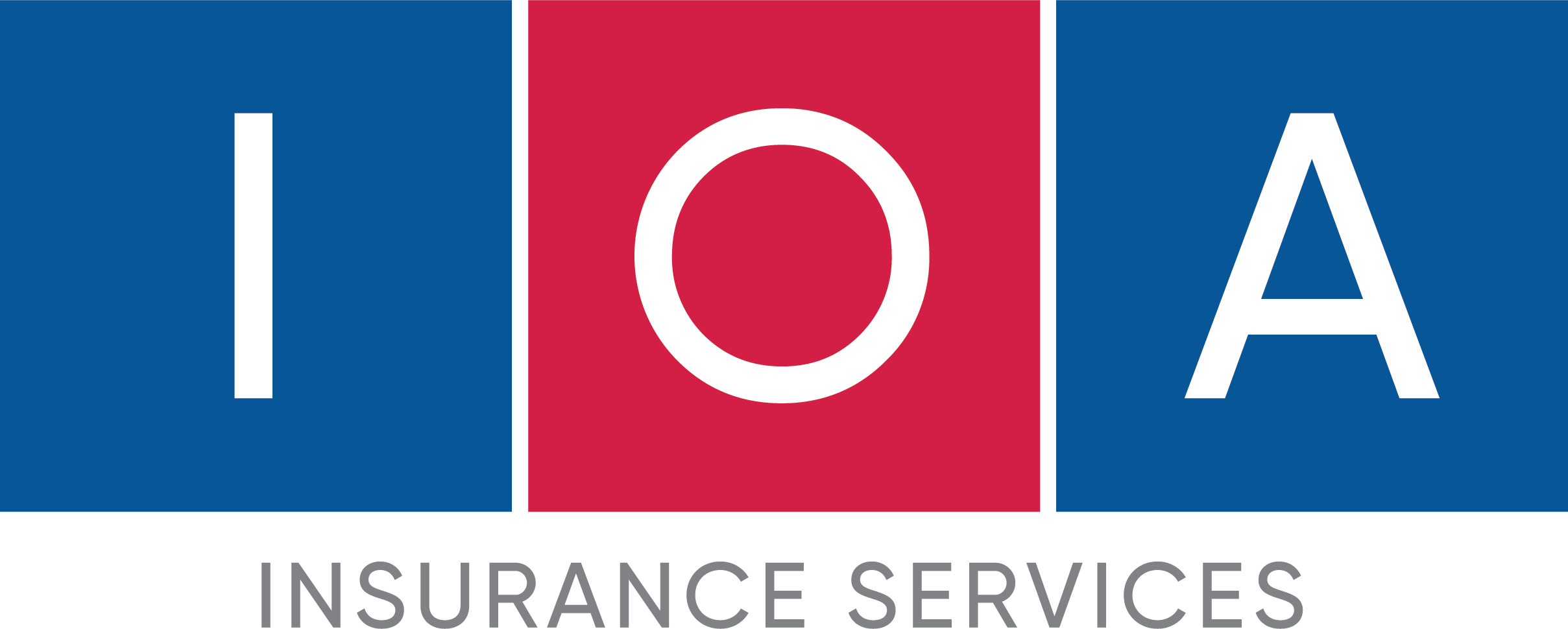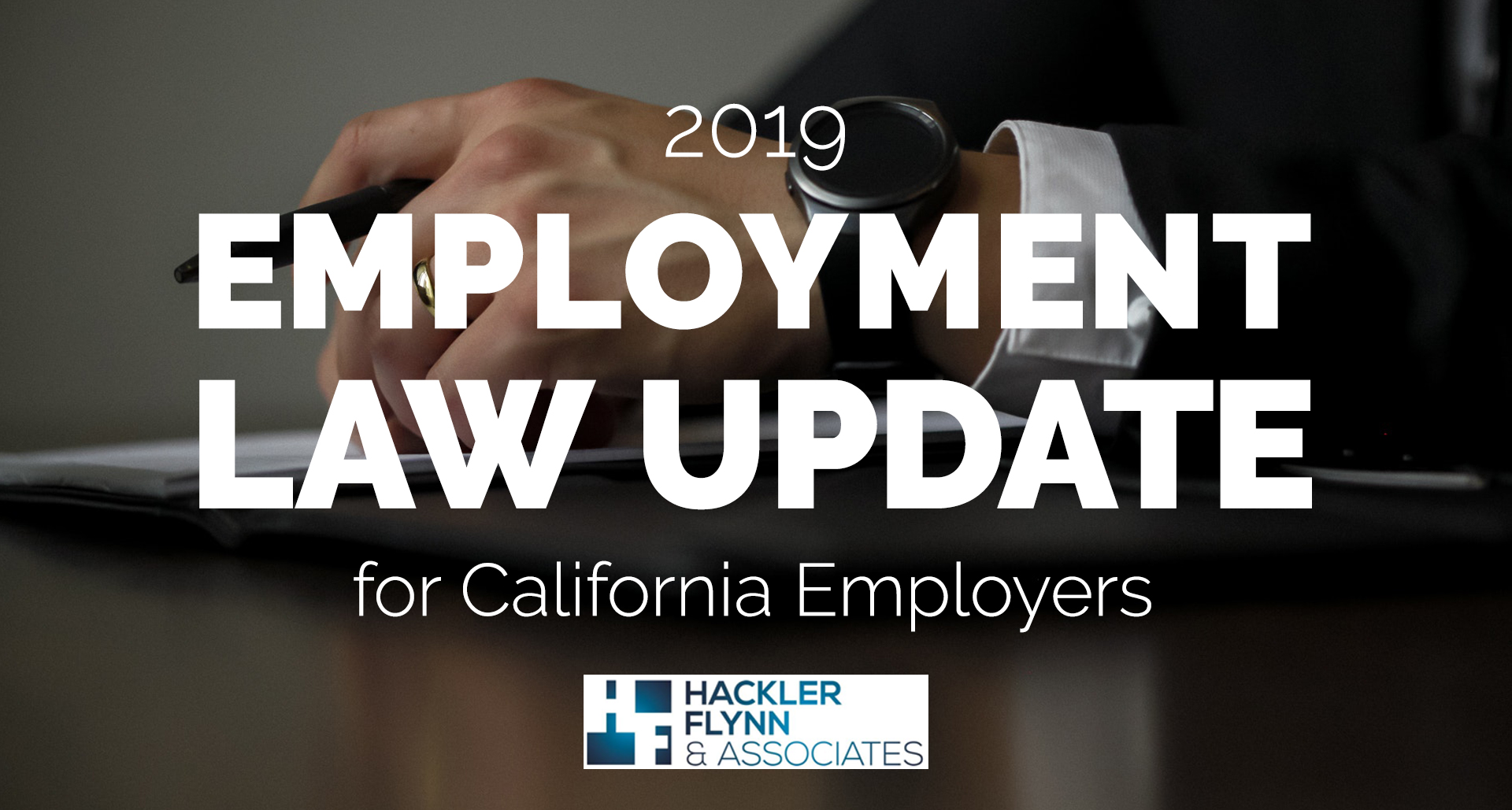Some of you may remember Cynthia Flynn from one of our Happy Employee videos we posted a while ago. With all of the changes in the laws for 2019 I asked her what we should be aware of from her perspective. As you know we are in very litigious times and need to keep up on the changes. Read below or click to download.
2019 LABOR & EMPLOYMENT LAW UPDATE FOR CALIFORNIA EMPLOYERS
Courtesy of Hackler Flynn & Associates
The California Legislature has enacted a number of new laws which impact California employers. These laws are changing fast, and it is important for employers to ensure they are compliant. Among the most significant are the following developments:
- Expansion of Requirements for Sexual Harassment Training: Currently, California law requires employers with 50 or more employees to provide supervisors with sexual harassment training every 2 years. This year, the California legislature has expanded the training requirements significantly. Employers (including all employers with 5 or more employees) will be required to provide at least 2 hours of sexual harassment training to all supervisory employees and at least 1 hour of sexual harassment training to all nonsupervisory employees by January 1, 2020. An employee’s initial training must be completed within six months of hire/promotion and every two years thereafter. Employees hired to work less than 6 months must receive training within the first 30 days of hire or before they work 100 hours.
- Criminal History of Applicants: SB 1412 modifies California’s “ban the box” law to clarify that California employers may ask an applicant about, or seek from any source information regarding, a particular conviction of the applicant if 1) the employer is required by law to obtain information regarding the particular conviction, even if it has been expunged, sealed, or dismissed following probation; 2) the applicant would be required to possess or use a firearm in the course of employment; or 3) an individual with a particular conviction is prohibited by law from holding the position sought (or the employer is prohibited by law from hiring such a person) even though the conviction has been expunged, sealed, or dismissed following probation. In addition, the statute expressly permits criminal background checks required or authorized pursuant to the rules of a “self-regulatory organization,” as defined by the Securities Exchange Act of 1934.
- Prohibition of Confidentiality Clauses in Sexual Harassment Settlements: The recently enacted SB 820 prohibits the inclusion of clauses (i.e. confidentiality or non-disclosure clauses) in a settlement agreement which would serve to prevent the disclosure of factual information related to a civil or administrative action that includes claims of sexual assault, sexual harassment, harassment or discrimination based on sex, the failure to prevent an act of workplace harassment or discrimination based on sex, or an act of retaliation against a person for reporting harassment or discrimination based on sex. Accordingly, any provision that prevents the disclosure of factual information related to such a claim is void as a matter of law and against public policy. There is an exclusion, however, for provisions which shield the identity of the claimant, including facts that could lead to the discovery of his/her identity. This type of provision may be included at the request of the claimant. Additionally, the law does not prohibit confidentiality provisions relating only to the amount paid in settlement of the claim.
- Lactation Accommodation: Employers are required to make reasonable efforts to provide an employee with a room or another location, which may include a bathroom (but not a toilet stall) to express breast milk for the employee’s infant child. AB 1976 amends the existing law to require that employers make reasonable efforts to provide employees with the use of a room or other location, other than a bathroom, to express breast milk. The location may be a temporary lactation location, so long as the location is used only for lactation purposes while the employee expresses milk.
- California Fair Employment and Housing Act: The California Fair Employment and Housing Act (“FEHA”) is the law that, among other things, prohibits the harassment of employees, interns, volunteers, applicants, or persons providing services pursuant to a contract based on protected categories, including race, religious creed, disability, medical condition, sex, gender, sexual orientation, age, marital status, and military status. Under SB 1300, FEHA has been amended to prevent harassment of employees by non-employees in the workplace and to provide guidance to California courts on the legal standard which should be applied in workplace harassment cases. The notable revisions and amendments are as follows:
- Employer Liability for All Harassment Committed by Non-Employees. Under existing law, an employer may be liable for sexual harassment committed by third (non-employee) parties if the employer knew or should have known of the conduct but failed to take immediate and appropriate corrective action. However, the law did not extend liability based on other protected categories, such as disability, age or race. SB 1300 extends FEHA’s employer liability for harassment by third parties based on any protected classification.
- Limitations on Releases and Non-Disparagement Provisions. SB1300 renders it unlawful for an employer, in exchange for a raise or bonus, or as a condition of continued employment, to require an employee to 1) sign a release of any discrimination, harassment, or retaliation claim under FEHA, or sign a statement that the individual will not bring a claim under FEHA, and/or 2) sign a non- disparagement agreement or other document that prohibits the employee from disclosing information about unlawful acts in the workplace, including, but not limited to, sexual harassment. We note that release and non-disparagement agreements are permissible as part of negotiated agreements to resolve a claim, however, the settlement must be voluntary, deliberate, and informed, as well as provide consideration of value to the employee. The employee must also be given an opportunity to retain an attorney or be represented by an attorney in the negotiation of the agreement.
- Direction to Courts in Harassment Cases. Under existing law, workplace harassment is unlawful if the alleged conduct is “severe or pervasive”. SB1300 lowers this standard in several ways. First, a single incident of harassing conduct is sufficient to create a hostile work environment claim under FEHA if the conduct has unreasonably interfered with the plaintiff’s work performance or created an intimidating, hostile, or offensive working environment. Second, a discriminatory remark, even if not made in the context of an employment decision, or made by a person not responsible for making decisions about the plaintiff’s employment, may be relevant, circumstantial evidence of discrimination and harassment. Third, the plaintiff in a sexual harassment case does not need to prove that work productivity actually declined as a result of the harassment, only that the harassment made it more difficult to do the job.
HACKLER FLYNN & ASSOCIATES, APC can assist with answering questions about these recent updates; updating your employee handbook; conducting trainings; or implementing solutions to any labor and employment needs. We can even provide a complete human resources audit for your company. For more information, contact us at cindy@hacklerflynnlaw.com or (323) 247-7030. Or visit our website www.hacklerflynnlaw.com This legal update is not intended as legal advice. Additional facts or future developments may affect subjects contained herein. Seek the advice of an attorney before acting or relying upon any information herein.

